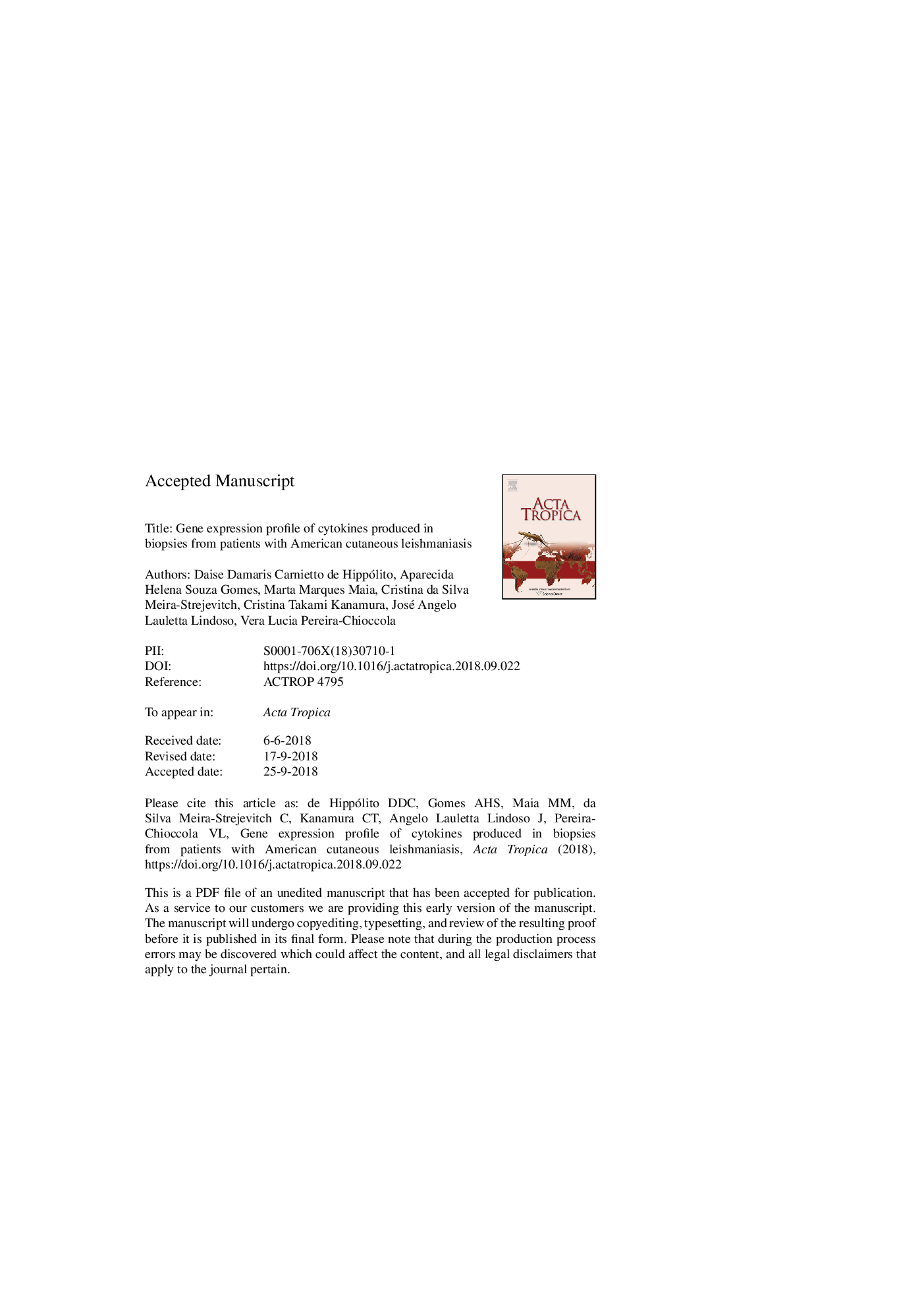| Article ID | Journal | Published Year | Pages | File Type |
|---|---|---|---|---|
| 11018401 | Acta Tropica | 2019 | 29 Pages |
Abstract
American cutaneous leishmaniasis (ACL) causes a local inflammatory process, inducing expression of several cytokine genes. Particularly, IFN-γ can predict to disease susceptibility. Based in these data, this study was aimed to investigate the gene expression profile of IFN-γ, IL-10, IL-27, TNF-γ, TGF-β and IL-6 produced in biopsies from ACL patients; and whether the gene expression profile of IFN-γ could determine the disease evolution. Gene expression of 6 cytokines was investigated in 40 formalin-fixed paraffin embedded (FFPE) biopsies from patients with cutaneous leishmaniosis (CL); and 10 FFPE biopsies from patients with mucosal leishmaniasis (ML) (control). All 50 patients were infected with Leishmania (Viannia) braziliensis. Gene expression was determined by qPCR; and a normal control group was used for calculations (5 normal biopsies). Values were expressed as Relative Quantification (RQ). The 40 CL patients were classified into 2 groups. CLlowIFN-γ, 35 patients with RQ for IFN-γ below 100; and CLhighIFN-γ, 5 (12.5%) patients with RQ above 100. Significant increase of mRNA levels of IFN-γ, IL-10 and IL-27 was shown in CLhighIFN-γ group when compared with CLlowIFN-γ and ML groups. TNF-α levels in CLlowIFN-γ group were higher than CLhighIFN-γ and ML groups. TGF-β and IL-6 were similar in 3 groups. Comparison of cytokine expression/group showed that CLlowIFN-γ group had an equilibrium between the cytokines analyzed. In ML group, IFN-γ was over-expressed; but in CLhighIFN-γ group, besides IFN-γ, IL-27 was also over-expressed. The immune response to Leishmania induces to identification of some markers, which can be determined by analysis by gene expression of cytokines produced in biopsies.
Keywords
Related Topics
Life Sciences
Immunology and Microbiology
Parasitology
Authors
Daise Damaris Carnietto de Hippólito, Aparecida Helena Souza Gomes, Marta Marques Maia, Cristina da Silva Meira-Strejevitch, Cristina Takami Kanamura, José Angelo Lauletta Lindoso, Vera Lucia Pereira-Chioccola,
